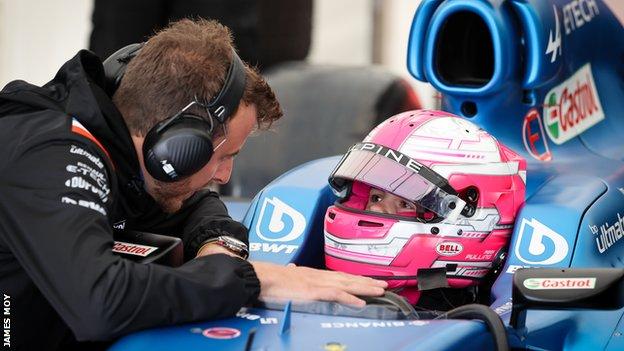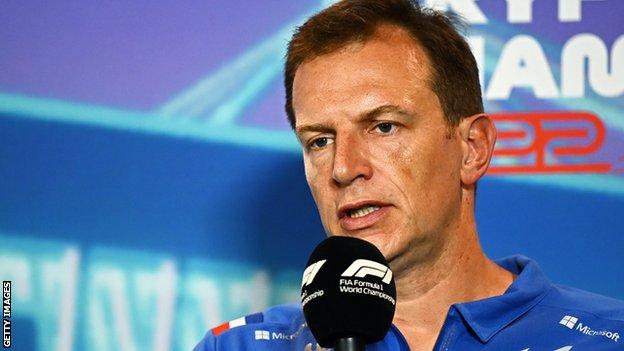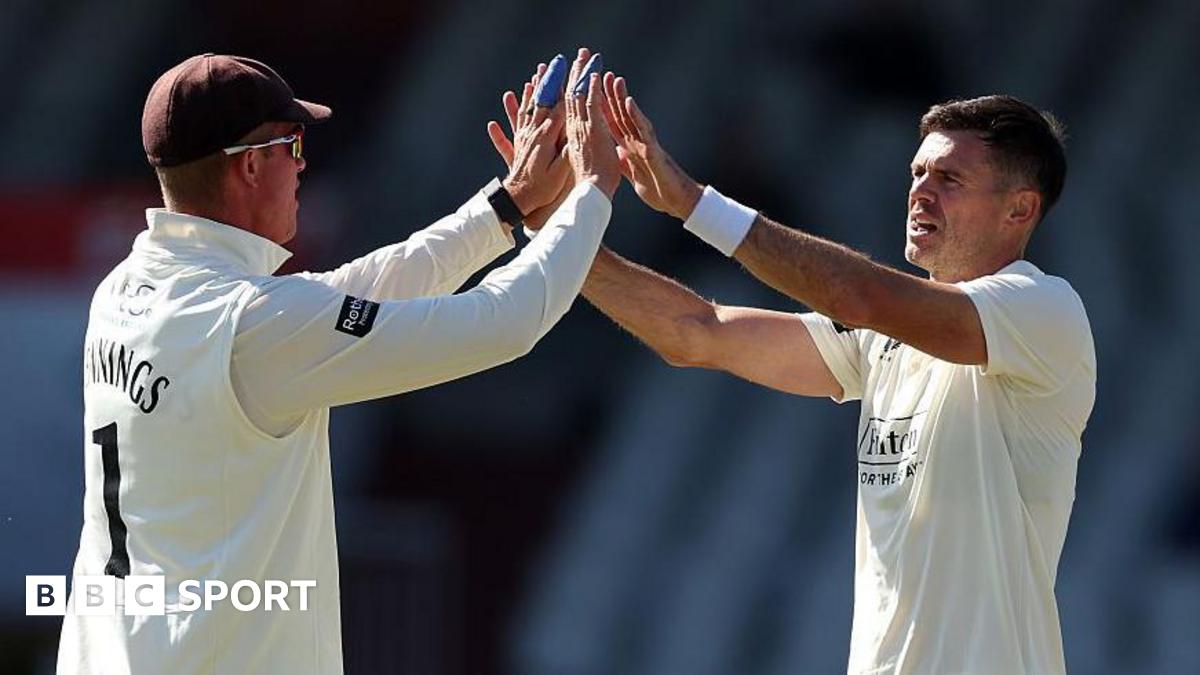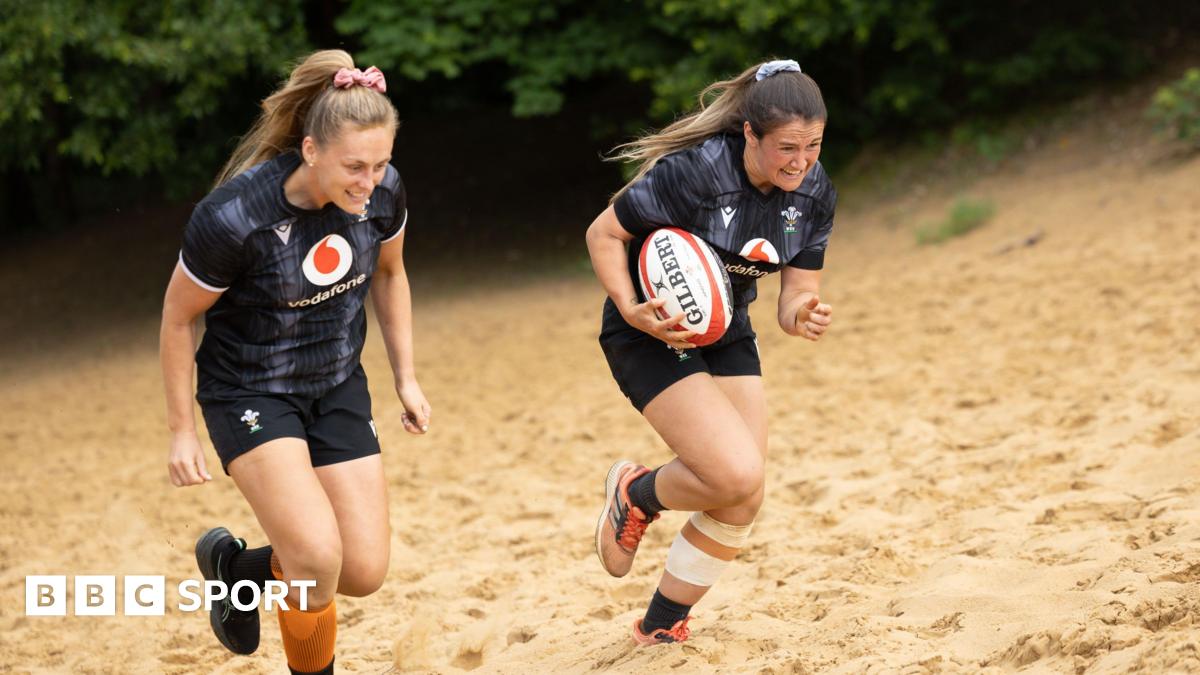ARTICLE AD BOX
 Alpine is trying to increase diversity across the company, not just in its F1 cars
Alpine is trying to increase diversity across the company, not just in its F1 carsThe Alpine team have launched a programme aimed at discovering a competitive female Formula 1 driver within eight years.
The French car manufacturer wants to "debunk the myths" around women in F1 as part of a wider diversity programme across the F1 team and company.
Alpine CEO Laurent Rossi said F1 was "exacting" and required "special capacities and capabilities".
"There is no way women cannot achieve it," he added.
Alpine's initiative will give girls and boys as young as 10 the same opportunities to progress in motorsport all the way to F1.
"It's a long path - eight years' programme - starting now," said Rossi, adding the first four or five girls identified will start in go-karting "in the next few weeks".
The company is launching research programmes aimed at fully understanding the physical, cognitive and emotional requirements of an F1 driver, in partnership with academic bodies including the Paris Brain Institute.
Current Alpine F1 drivers Fernando Alonso and Esteban Ocon will be put through physiological and psychological assessments to give examples of the characteristics required.
The results of those studies will be fed into the programme to refine the training and development needs of the aspiring drivers.
Rossi said: "We go so far as to think we can have an influence on the way the myths are built, and we want to debunk them: 'Women are not capable physically' ... 'Women are not capable physiologically, mentally' ... 'Women shouldn't do that' ... 'There are no role models.'
"The idea is: 'Let's take everything from the beginning and make sure we build the path, in the same way we built the path for men.' I am convinced that in doing so we will multiply the probability of women achieving."
 Laurent Rossi says he wants to "increase the talent pool I am tapping into"
Laurent Rossi says he wants to "increase the talent pool I am tapping into"Why have women not made it to F1?
Rossi said the programme would provide the necessary support that had been lacking for female drivers in the past.
"They never got the proper training, the environment, the support of the governing bodies - potentially, the stakeholders - to get there and that's why it never happened," he said.
"You have women piloting jet combat aeroplanes, women taking off in rockets and becoming astronauts. They withstand an incredible amount of restraints physically and intellectually; they are extra-capable. They could then drive a Formula 1 car, I'm certain of that.
"It is just a matter of providing the right environment. It is like also changing the perspective and prejudice, basically destroying those prejudices to make it more accessible.
"At the moment, I would surmise 99% of women don't think it's feasible for them to get there.
"We address only a super-small portion of the women, whereas if you suddenly open the gates, who knows? You're going to have statistically way more women wanting to do it and then we'll train them and hopefully there will be more women capable of getting there."
Is the barrier societal or physical?
Only two women - both Italian - have started an F1 World Championship grand prix.
Maria Teresa de Filippis competed five times in the 1950s, and Lella Lombardi took part in 12 races in the mid-1970s.
Lombardi is the only woman to score points - she won half a point for finishing sixth in the truncated 1975 Spanish Grand Prix.
Three others have since entered grands prix - Briton Divina Galica and South African Desire Wilson in the 1970s, and Italian Giovanna Amati in 1992 - but failed to qualify.
And in the past 30 years only one woman has taken part in a grand prix weekend - Scot Susie Wolff drove in three free practice sessions in her role as Williams test driver over the 2014 and 2015 seasons.
One key unanswered question as to why a woman has not yet succeeded in F1 is whether it is because of societal issues - prejudice, lack of opportunity and role models, for example - or whether it will turn out to be a sport in which, like many others, women cannot compete equally with men for specific physical reasons.
Rossi said: "We don't know yet. I have my own personal view. I am happy to be proved wrong. I don't think it matters.
"Looking at all the drivers, they are not built the same way. They don't do the same training. They are very different. I don't think it is brute physical force that is being employed in F1 and that's why you would segregate some disciplines.
"It is a little bit pushing it, but you look at Fernando Alonso and everyone is wondering why is he driving a Formula 1 car at 40-plus. I think it is because it is not as important to be super-athletic. Because he's not. He is incredibly fit but he's not like an Olympian, and if he can drive an F1 car at age 40, I don't see why a super-fit age 30 woman wouldn't.
"I am pretty sure a super-fit age 30 woman would beat Fernando in most physical activities, because I am 40 myself and I know what it does to you. So if he can drive an F1 car pretty well now, it is a good example that I don't think that physical strength is the key."
Segregation or inclusion?
In recent years, the female-only W Series has emerged as a pathway for women to try to make their names in motorsport.
But although Briton Jamie Chadwick has won both of its championships and has followed in Wolff's footsteps to become Williams test driver, she is not close to a breakthrough into an F1 race seat.
Rossi said he believed separating men and women on the race track was the wrong approach.
"W Series is a form of segregation," he said. "One thing [to promote inclusion across motorsport] would be to recognise that there is not necessarily a need to have parallel series to showcase women's talent, and simply open up a bit more to that.
"What we need is people like us - and I know other teams do it as well - taking the cause, embracing it and deciding they want to make inroads.
"The stakeholders shape the future of the sport and industry. We are a stakeholder; we believe in it. So our role is to shape it, and together with others we will shape it.
"I think segregation or lack thereof should be the first step. And then we can establish step by step progression to get there."
Alpine's wider diversity programme
The search for a female F1 driver makes up one aspect of a wider programme at Alpine aimed at increasing diversity across the company.
"F1 is the emerging part, the visible tip of the iceberg," Rossi said. "For me, as a CEO, cynically speaking, it is about increasing the talent pool I am tapping into.
"At the moment, it is just like I am addressing 50% of the talent pool and women usually don't think of the automotive industry in general or F1 in particular as an avenue for their career. And that's wrong. In doing so, I deprive myself and Alpine and the Renault Group of half the talent and more than reasonable chances to success.
"The idea is to correct that."
Rossi said the company would soon announce women make up half of its executive committee.
Asked why the programme was focused on gender rather than ethnic or racial diversity, Alpine vice-president of human resources Claire Mesnier said: "Women are the biggest unexplored talent pool in the motorsport and automotive industry.
"Secondly, if we spread too thin, we won't achieve anything, so at Alpine we decided to focus the inclusion programme on women and social diversity.
"It is all about meritocracy and performance - we need to get the best talent where they are."

- Medical student, pilot then script writer: Find out what inspired the man who wrote Line of Duty
- But how do they fry with air? Greg Foot investigates whether air fryers live up to the hype or overpromise


 2 years ago
36
2 years ago
36








 English (US) ·
English (US) ·